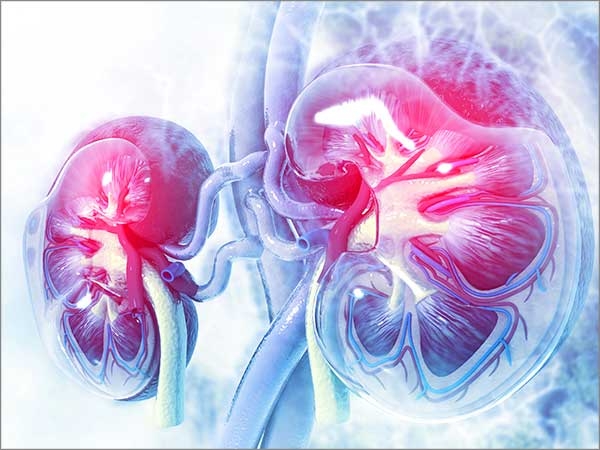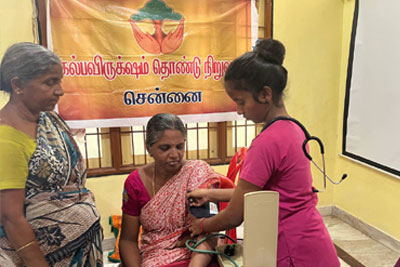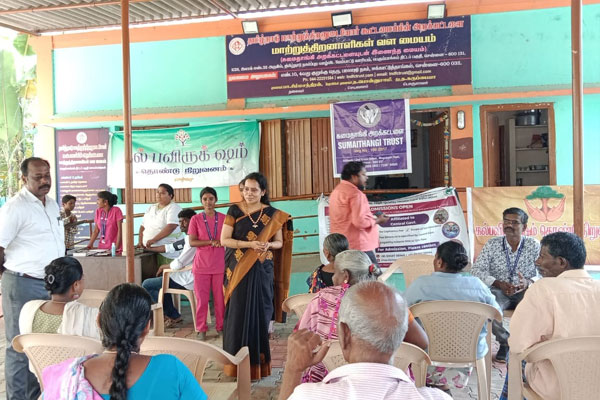Genito Urinary Cancer
Genitourinary Cancers are found in the urinary system and the male reproductive system. These include kidney cancer, ureteral cancer, bladder cancer, prostate cancer, urethral cancer, penile cancer and testicular cancer.
Types of Bladder Cancer
Almost 90 percent of bladder cancer cases are due to transitional cell (urothelial) carcinomas.
The other, very rare types of bladder cancers are:
• Squamous cell carcinoma
• Adenocarcinoma
• Small-cell carcinoma
• Sarcoma
Risk Factors
• Smoking: It contributes to about half of all cases of the disease.
• People who are exposed to certain industrial chemicals
• Gender: Bladder cancer affects men more than women.
• Age: Bladder cancer mostly affects people who are 50 and above.
• Chronic bladder infections and irritation
• Genetic syndromes like Lynch syndrome, and Cowden syndrome
Symptoms and Diagnosis
Early-stage bladder cancer often causes symptoms such as:
• Blood in the urine
• More frequent urination
• A burning sensation during urination
Symptoms of more advanced bladder cancer can include:
• Not able to pass urine
• Lower back pain
• Loss of appetite and weight loss
• Bone pain
Bladder cancer is typically diagnosed with Cystoscopy, Urodynamic Testing and Urinary-Tract Imaging.
Kidney cancer
It is a common type of cancer found in men and women.
Causes and Symptoms
What exactly causes kidney cancer is unclear, but possible risk factors include:
• Smoking
• Obesity
• Exposure to certain chemicals
• Male gender
• Older age
• Advanced kidney disease
• Genetic conditions
The symptoms include:
• Blood in the urine
• A lump on the lower back or side
• Unexplained weight loss or fatigue
• Loss of appetite
• Unexplained and prolonged fever
Diagnosis of Kidney Cancer
Kidney cancer diagnosis involves a physical exam, blood workup, urinalysis, Imaging like MRI.
Treatment for Kidney Cancer
Kidney cancer treatment depends on cancer stage, tumour size, preferences, and overall health. It is during the testing for another health problem that about 80 percent of kidney cancers are detected.
• Kidney Cancer Surgery: Surgery is the mainstay of treatment for Kidney Cancer.
• Immunotherapy: To attack and kill cancer cells by resetting the immune system
Prostate Cancer Screening and Symptoms
Early prostate cancer doesn’t usually show any specific signs or symptoms. To identify prostate cancer in its earliest stages a prostate-specific antigen (PSA) blood test and digital rectal exam (DRE) are usually done.
Some of the symptoms of prostate cancer include:
• Blood in the semen or urine
• Difficulty holding back urine or urinating
• Inability to urinate
• Nagging pain in the pelvis, back, or hips
• Burning sensation or pain when urinating
• Painful ejaculation
• Interrupted or weak urine flow
Causes and Risk Factors
Environmental causes and hereditary factors are the main causes. Other risk factors include smoking, obesity, vasectomy and prostatitis.
Diagnosis
• Digital rectal examinations
• Prostate-specific antigen
• MRI-guided biopsy
• Ultrasound-guided biopsy
Treatment options include surgery, radiation therapy, and medical therapies.
Testicular cancer
It can occur in one or both testicles. Almost 90 percent of testicular cancer cases are due to germ-cell tumours.
Risk Factors
• Undescended testicle(s)
• Family history
• Human immunodeficiency virus (HIV)
• Cancer in the other testicle
• Carcinoma in situ
Symptoms and Diagnosis
Symptoms are not found in all cases of testicular cancer. The most common symptoms are:
• Tenderness, a lump, or swelling in a testicle
• A change in shape of a testicle
Physicians might order blood work, serum tumour markers and imaging studies to make a diagnosis.
Treatment for Testicular Cancer
Depending on its characteristics and stage, as well as the patient’s overall health, preferences, and goals doctor will decide on the treatment. The options include surgery, radiation therapy, and chemotherapy.
0
Authored By Dr. M. Banupriya
MBBS, MDRT, FIAMS, Ph.D, CCEPC (Palliative care), Consultant Oncologist












